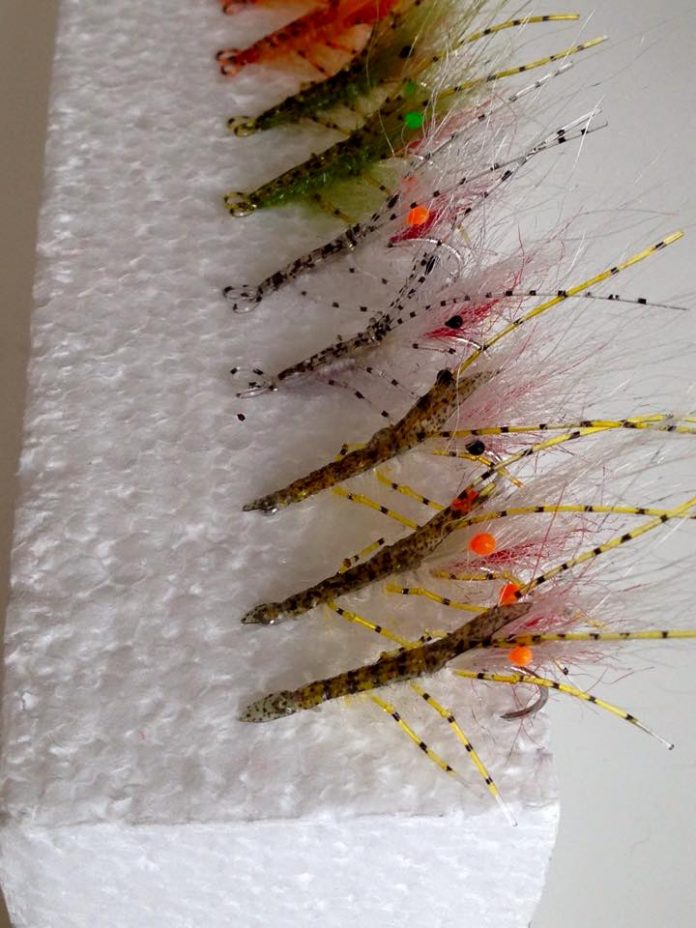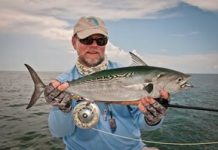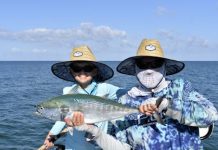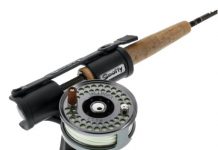
Even members of our local fly fishing clubs reveal that many primarily use more conventional tackle, and infrequently go to the long rod. There are exceptions of course, but frankly this phenomenon is difficult for me to understand.
In spite of these conclusions, saltwater fly fishing has become the fastest growing segment of our sport. Why? Because frankly — it’s fun!
Living in coastal Florida, where most have access to great shallow water estuaries, why do so few taking advantage of this resource? They spend Saturday mornings in front of a TV, loving every minute –watching someone else do what is in reality, just minutes away from their door.
Unlike the many other sports that we love to watch, but can’t participate in, saltwater fly fishing is available to anyone who can hold a spinning rod.
So, if location is not a factor, what else contributes to this dilemma?
“I tried it but wasn’t successful.” What does this mean?
Is this person a not a successful inshore fisherman with conventional tackle, taking up fly fishing will definitely not improve their success. That’s why most experts will tell you that fly fishing without previous successful fishing experience is destined to fail. The only possible exception would be if every trip was with an experienced guide.
Thus, you can conclude that knowing how to catch fish conventionally is a prerequisite to fly fishing success.
Knowledge of fish habits, location, tides, and stealth on the water should be the established basis for successful fly fishing. Whether you wade fish, paddle fish or use a skiff is really irrelevant if you are satisfied with your degree of fishing success. The fact of the matter is that many beginning fly fishers really enjoy the challenge of a new approach. And somehow, this ancient angling art is very compatible with nature, solitude, scenery, fellowship, and relaxation.
Age is not a deterrent. Some of our very best fly casters are in their early teens or senior citizens. Knowledge made you a good conventional fisherman. Now you can take that experience to the next level.
Where can one learn to start fly fishing? Just head to your local fly shop — preferably a place that specializes in this pursuit. They should have the knowledge and equipment available to get you on the right track and accelerate your learning curve.
Find an instructor who is a good listener and will not talk down to you. I have seen inept fly fishing teacher act like a cold shower to someone who was enthusiastic about getting started Explain your concerns, and be certain they are addressed.
By the way, if their conversation begins with a 650.00 fly rod, head for the door! Improvements in technology have made some entry-level rods, reels and fly lines that are really great and quite affordable.
I began at a young age with hand-me-down equipment, but a few patient adults were willing to share their experience with me and create an atmosphere of understanding that helped me get started. Here you will find equipment in your price range, free fly casting clinics, as well as books and videos that you can take home to continue your learning experience.
Our area has two great fly fishing clubs that meet monthly, Suncoast Fly Fishers, and Tampa Bay Fly Fishing Club. An hour before their formal meeting, which usually includes a speaker, qualified casting instructors will help you with anything you want to know about fly fishing, using the club’s equipment. A lending library of books and videos, discounts on equipment, and monthly fly fishing trips to area waters are just a few other benefits of membership. Someone will usually be tying flies and willing to suggest patterns for your particular needs. Many members would likely invite you to be their fishing partner. Their reason for joining was to learn, just like yours. To find a club in your area, go to www.fedflyfishers.org, or check this website.
Use your back yard to practice casting. Every evening after dinner, take out your fly rod for a twenty-minute session. Frequent practice will allow your muscles to develop memory and you should feel more comfortable after a while. And remember — a good caster seems to perform with minimal effort. You will eventually.
Once your casting ability improves, leave that conventional tackle at home. Devote all your time and energy to this new pursuit. Your first fish with a fly rod will be a memorable experience. I can assure you that, once you begin to reap the benefits of this sport, you will understand a wonderful dimension of fishing you never knew was there.
Capt. Pat Damico
St. Pete Beach
727-360-6466
www.captpat.com
- Captain’s Corner:Pat Damico - June 25, 2019
- Flat water makes seeing tarpon easier - May 17, 2017
- Warm rivers holding plenty of targets for fly fishermen - February 16, 2017











